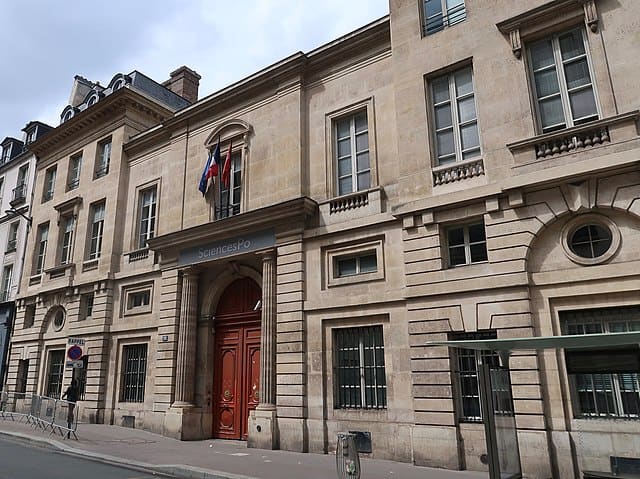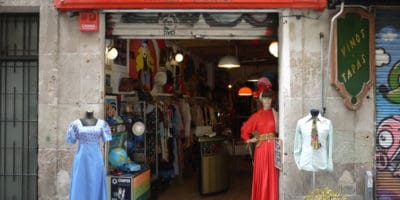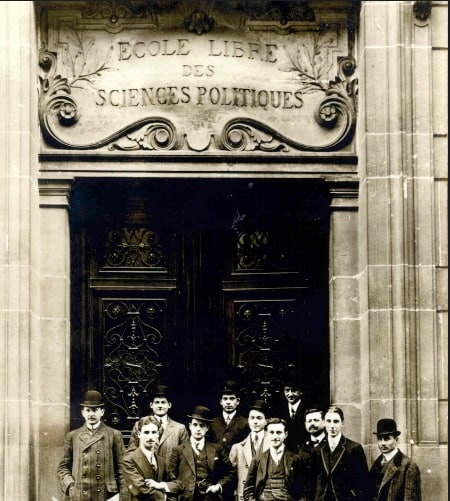10 Amazing things you didn’t know about Sciences Po Paris
As an American, one of the most fascinating aspects of moving to France in my mid-twenties was the possibility of going back to school. Where I’m from, higher education will cost you a pretty penny, so I never imagined that I would pursue my Master’s degree after my undergrad. Here in France, higher education is actually affordable and so back to school I went!
I didn’t go to Sciences Po Paris, a prestigious French university, as I knew that I wanted to study literature and the school, doesn’t offer it. But it is a very impressive establishment nonetheless! Whether you’re thinking about applying to Sciences Po Paris or you’re just interested in learning more about the school, read on!
1. Sciences Po Paris is the Paris Institute of Political Studies
If you’re scratching your head and wondering what Sciences Po means, it’s simply short for the Paris Institute of Political Studies. In French, the school is called the Institut d’études politiques de Paris.
I’ll get more into why the school was founded and what it focused on later, but today, the school specializes in the social sciences. There are courses ranging from law, economics, sociology, history, and political science.
2. Sciences Po was founded in 1872
A group of French intellectuals, entrepreneurs, and politicians headed by Émile Boutmy came together to found Sciences Po in 1872. The group included others such as Paul Leroy Beaulieu, Ernest Renan, and Albert Sorel.
Boutmy brought this group of men together to found a new school because he was disappointed by Parisian’s ignorance of political issues that were affecting them directly during the Paris Commune in 1870.
3. France’s defeat in the Franco-Prussian War was one reason why the school was founded
The 1870s welcomed crisis after crisis for the French. Not only was Paris upheaved during the Paris Commune in 1807, but France had also just been defeated in the Franco-Prussian War, and their leader, Napoleon III, was on his way out as well.
Boutmy and the other Science Po founders were shocked by a total disinterest in the social sciences, including (of course) political science. The founders wanted to create a school that would train and educate future French politicians and civil servants.
4. Sciences Po was originally known as École Libre des Sciences Politiques (ELSP)
The founder’s idea worked! Between 1901 and 1935, over 90% of all people who entered into the Grands corps de l’État, an important part of French administration, graduated from Sciences Po.
The school was originally called the École Libre des Sciences Politiques (ELSP), which translates to Free School of Political Sciences in English. But, in 1945, with Europe in the midst of recovering from the Second World War, the name of the school (now called the Institut d’études politiques (IEP)) wasn’t the only thing that would change.
5. After World War II, the school underwent many reforms
At the end of World War II, war hero and the new leader of France’s Provisional Government, Charles de Gaulle knew that a school to train public servants to help rebuild the country was essential. While many people who worked for him were ELSP graduates, it was clear that the school’s alumni also made up the group of politicians and leaders who were ultimately complacent in the fact of the Nazis.
The school was split up into two bodies: the IEP and the Fondation Nationale des Sciences Politiques (FNSP) (National Foundation of Political Science in English). The FNSP manages the IEP thanks to considerable subsidies from the French government. Although they are technically two separate bodies, the two work side by side, and the term “Sciences Po” actually represents both of them.
6. Almost all of France’s presidents studied at Sciences Po
Sciences Po has had some pretty famous graduates walk amongst its halls! 6 out of the 8 French presidents attended the university, including the current president, Emmanuel Macron. Others of mention are Georges Pompidou, François Hollande, Nicolas Sarkozy (he didn’t graduate), Jacques Chirac, and François Mitterrand.
7. Sciences Po has 7 campuses across France
Not interested in Paris? No problem! Science Po boasts 7 campuses across France. Each campus specializes in the social studies of different areas across the globe. Campuses include Reims, Dijon, Le Havre, Menton, Nancy, Poitiers, and, of course, Paris.
8. The Paris campus is in the 6th and 7th arrondissements
The Paris location is the largest and offers the most options for studies. The campus also houses the school’s graduate programs. The campus isn’t a traditional American campus in the sense that the school isn’t separated from Paris, it exists within several different buildings which as scattered across two arrondissements, or small neighborhoods, in the city. Several of these buildings are on the Boulevard Saint-Germain and the rue des Saints-Pères.
9. Sciences Po boasts 7 different undergraduate schools
If you’re interested in studying at Sciences Po, there are 7 different undergraduate schools to choose from:
- School of Public Affairs
- School of Management and Innovation
- Paris School of International Affairs
- School of Journalism
- Sciences Po Law School
- Doctoral School
- Urban School
As you can see, all of the options are closely related to the social sciences.
10. Sciences Po welcomes international students
The importance of international studies and relations is not lost on Science Po. Additionally, 49% of the school’s student population are international students. There are 150 nationalities represented, and there are 25 different languages offered at the school! It’s also important to mention that a degree from Sciences Po is internationally recognized for the prestige of the school. If you’re interested in the social sciences and want to study in France, Sciences Po should be your go-to!
Conclusion
I hope that you’ve enjoyed this short introduction to Sciences Po, one of the most impressive schools for the social sciences in the world! Are you inspired to apply?
If you’re in Paris and you want to learn more about the area that Sciences Po is in, why not join one of our walking tours? Click here to learn more about the options and to make your booking!
Planning a trip to Paris ? Get ready !
These are Amazon’s best-selling travel products that you may need for coming to Paris.
Bookstore
- The best travel book : Rick Steves – Paris 2023 – Learn more here
- Fodor’s Paris 2024 – Learn more here
Travel Gear
- Venture Pal Lightweight Backpack – Learn more here
- Samsonite Winfield 2 28″ Luggage – Learn more here
- Swig Savvy’s Stainless Steel Insulated Water Bottle – Learn more here
Check Amazon’s best-seller list for the most popular travel accessories. We sometimes read this list just to find out what new travel products people are buying.

















